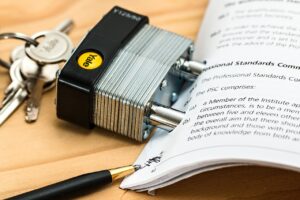
How Do Bail Bondsmen Fight Chargebacks?
It’s not uncommon to deal with chargebacks if you’re in the bail bonds business. Even more so, it’s common to have to fight chargebacks.
In fact, this is one of the reasons merchants would consider bail bonds high-risk accounts and these high chargeback rates are usually because of the nature of your clients and the types of services you offer to them.
It doesn’t mean, however, that you can just allow clients to ask for a return of their money whenever they want to because more than the loss of profits, high chargeback rates could hurt the credibility of your business in the long run.
The question is: how do you fight these chargebacks?
Prevention is Still Better Than Cure
If you think about it, your clients sought your services because they are in dire need of financial help to get out of jail. Most of these people don’t have the financial capacity to post a bail with the cash they have on hand, so they resort to credit card payment to deal with the issue.
Although this option favors you in general, it could also result in chargebacks that are exhausting and costly to deal with.
To prevent all that from happening, your first line of defense should be to educate your clients about your business, your services and of course, your billing and refunds policy. If possible, furnish a physical copy of your agreement and have the client sign your terms and conditions and policies to prove that they understand everything.
Keep a Record of All Your Transactions
If a chargeback is still filed despite your best efforts, it’s very important to keep a record of all the transactions you made with and on behalf of the client.
These documents will help you prove the legitimacy of your services so you can dispute the chargeback and not have to return money that’s already been paid to your business.
Offer a Refund Instead
Some people may confuse a refund with a chargeback, but the latter is actually more damaging to your business. So if you’re in a situation where you agree with the client’s reason for filing a chargeback and you think he deserves the money, try to negotiate for a refund instead.
Aside from saving some money by not paying the chargeback fee, you’ll also keep your chargeback rates low, which is very important if you don’t want to tarnish your credibility.
Prepare Your Argument
Once a chargeback is filed, you’ll be informed of that process and given the chance to provide your dispute through proper documentation of the transaction. For one, you need to furnish the delivery receipt and the proper document showing the description of your product or service.
You should also be able to show communication between you and the client when he contacted you to resolve the issue. If the bank finds that your argument is strong and you have the evidence to prove it, the chargeback will easily be turned down and you’ll have the blocked funds.
Make sure to provide all the documentation within the given time frame to show that you’re serious in dealing with these matters and avoid missing the chance to fight chargebacks.
Joyce Hope is a writer who specializes in merchant accounts. She has worked for First Card Payments since 2017.
No Comments
Sorry, the comment form is closed at this time.



